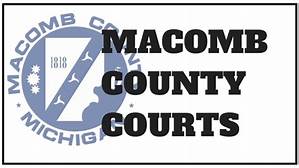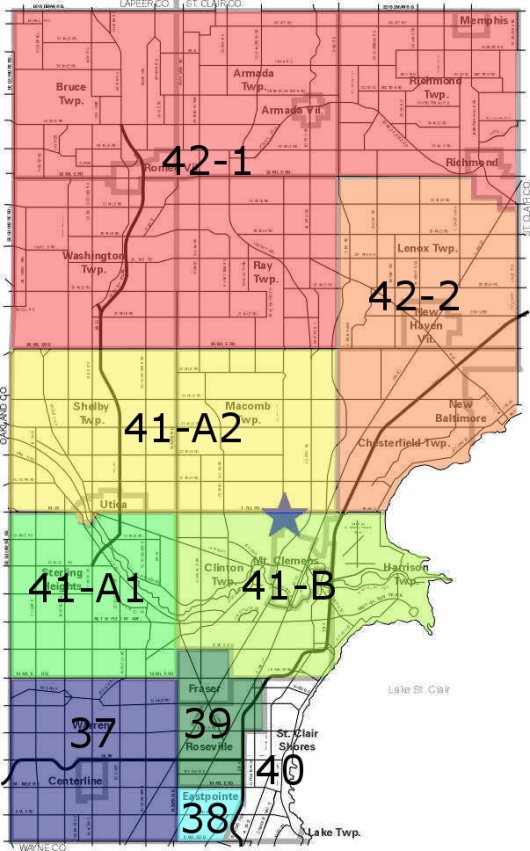In a recent Wall Street Journal Article Judge Thomas Boyd, who handles misdemeanor cases in Ingham County, Michigan, said
“he sometimes finds himself arguing with defendants who seem too eager to admit wrongdoing without consulting a lawyer.”
The crime of shoplifting is covered under the umbrella of the Michigan Retail Fraud statutes. Retail fraud is a serious crime. A person convicted of retail fraud is labeled as a “dishonest” person or a “thief”. We believe that these characterizations are unjust and can unfairly damage a person’s reputation, lead to deportation and can. jeopardize employment and/or education opportunities . Being charged with a any crime can be a life changing event. Don’t take the path of pleading guilty without the benefit of a lawyer. A skilled local criminal defense lawyer will get your life back on the right track, restore your reputation and keep your record clean in the process.
Cases dismissed even if you did the crime!
Being guilty does not mean that you will be found guilty. The court system can be forgiving, especially if you have are a first offender. In this publication, we discuss how a retail fraud offense can be dismissed for eligible offenders in every Macomb County District Court:
- 37th District: Warren, Centerline
- 38th District: Eastpointe
- 39th District: Roseville, Fraser
- 40th District: St. Clair Shores
- 41-A District: Sterling Heights
- 41-A District: Shelby Township, Macomb Township, Utica
- 41-B District: Clinton Township, Harrison Township, Mount Clemens
- 42-1 District: Romeo, Washington Township, Armada, Richmond, Ray Township
- 42-2 District: New Baltimore, Chesterfield Township, Lenox Township, New Haven
In addition, we warn you that an opportunity to get a dismissal can be lost by saying the wrong thing on your court date to the prosecutor or to the judge. You also need to understand that the employees of the court are forbidden by law to give you legal advice! Getting a local criminal defense lawyer is always your best course of action to GET YOU OUT OF THE COURT SYSTEM. If you are charged with retail fraud, there are many ways that an experienced Macomb County criminal defense attorney can negotiate to get you out of the court system by accomplishing these goals:
- Avoid a conviction.
- Avoid deportation.
- Avoid jail.
- Avoid a criminal record.
Retail Fraud: Major Shopping Corridors
Retail fraud cases are on the rise and are always one of the most frequently charged misdemeanor offenses and felony offenses in the Macomb County District Courts where we practice extensively. While every court in Macomb and Oakland County sees its fair share of shoplifting cases, the courts which are located in regions with shopping malls (Troy, Roseville, Sterling Heights), major retailers (Target, Kohl’s, Walmart, Home Depot, Meijer) and major shopping corridors have the greatest number of retail fraud cases on their dockets for obvious reasons. While each offender has a different reason for committing the offense of retail fraud, some of the common variables that we are seeing in Macomb County misdemeanor retail fraud cases (amount involved is under $1,000) are as follows:
- Isolated Incident: Our typical client charged with retail fraud does not have any prior criminal record, with the exception of possible prior minor infractions or misdemeanors.
- Shoplifters target easily concealable merchandise, such as cosmetics, food items, lingerie, jewelry.
- Shoplifting often occurs at the self checkout by attempting to defeat the scanner or by scanning an item or barcode that is a lower price.
- Many individuals accused of retail fraud have made legitimate purchases at the retail establishment and have financial means to pay for the item(s) improperly taken.
- The value of the property taken is under $1,000.00.
Retail Fraud: Concealment, Scanners, Changing Price Tags
Retail fraud occurs in many different ways. It can be accomplished by taking property and attempting to conceal it, by changing a price tag or putting item in a container that is offered for sale for a lesser amount. Retail fraud also occurs frequently at the point of checkout at a self-scanner or when someone tries to defeat the bar code scanning equipment by spurious means.
Retail Fraud Over $1,000 = Felony, Under $1,000 = Misdemeanor
Retail fraud crimes can be charged as a felony or misdemeanor and are classified by the value of the property taken or whether the offender has a prior record. A prior record for larceny, false pretenses or a prior retail fraud may result in enhanced penalties.
- 1st Degree Retail Fraud, Felony: Maximum Penalty: Up to 5 years in prison, $10,000.00 fine, court costs. Value of Property or Money: $1,000.00 or more
- 2nd Degree Retail Fraud: Misdemeanor: Maximum Penalty: 1 year jail, $2,000.00 fine, court costs. Value of Property or Money: $200.00 but less than $1,000.00
- 3rd Degree Retail Fraud: Misdemeanor: Maximum Penalty: 93 days jail, $500.00 fine, court costs. Value of Property or Money: Under $200.00
Triple Penalty: In addition to the above penalties, the court has the option to impose a fine, or a penalty up to 3x the amount of property or money attempted to be misappropriated, whichever is greater.
Civil Demand Letter: The retail business may send a letter requesting up to $200.00 from the alleged offender even before the case is within the court system. The criminal retail fraud matter will not be dropped just because this amount is paid. The civil demand for money and the criminal proceedings are separate and distinct matters.
Impulsive Behavior, First Offender?
Approximately 20,000 larceny related crimes are reported each year in Michigan. Larceny related crimes include retail fraud. Shoplifting is not limited to those that are underprivileged. In general, our clients have never been in trouble, have financial resources and their conduct can be described as an isolated incident. In other cases, we have also represented those that are impoverished or suffer from a compulsive shoplifting disorder. It is our job to work with our clients to understand why our client is charged with a crime so that we can provide effective legal representation and solutions.
- Impulsive behavior: Impulsive conduct, or acting before you think, is also high on the list of reasons that a person engages in the offense of retail fraud. Impulsive behavior is not limited to juveniles or youthful offenders. Our Macomb County criminal defense lawyers have represented individuals in every age group and every walk-of life including senior citizens and mini-van-moms who site impulsiveness as a reason for committing an act of retail fraud. We label many retail fraud cases as an “isolated incident” which means that it is not likely to ever occur again. Most impulsive or first time offenders are not likely to become a client again for retail fraud and most courts go give leniency for first time offenders engaged in a one time “isolated incident”.
- Psychological issues, adjustments to medications: Pre-existing psychological conditions including, PTSD, depression, ADHD, along with adjustments to prescription medications, can sometimes be the cause of erratic or irrational conduct that leads to a person to engage in risky behavior. The court system is sensitive to those that are dealing with a psychological disorder or maybe recent stressful situation that causes inappropriate conduct. In these cases, we may recommend that our client begin a counseling program, attend a retail fraud prevention class or take some other proactive course of action. We will obtain as much background information as possible from our clients and make recommendations that can often make a vast difference in the outcome of a case once it is in the court system.
I have been arrested for retail fraud. What do I do next?
Being arrested for any crime can be a devastating experience. If you are caught shoplifting and are looking at being charged with retail fraud, you will either be arrested or given a citation with instructions to contact the court. If you find yourself in this position, hiring a local criminal defense lawyer is your best course of action to navigate your case and get you out of the system smoothly and expeditiously.
Macomb County Misdemeanor Case Procedure
Arraignment: An arraignment is where the court will read the charge(s), advise the accuse of his or her right to an attorney, set bond and schedule the next court date.
- Discovery: The next stage of the case is called discovery which means both sides have the right to gather all of the evidence.
- Motions: Motions may need to be filed when the court’s is needed to address pre-trial issues.
- Pretrial Conference: The pretrial conference is an important stage in a criminal case which typically results in a resolution of a case without heading to trial.
- Trial: A person accused of a crime is entitled to a trial before a jury.
- Burden of Proof: The prosecutor must prove its case beyond a reasonable doubt or the jury is required to return a verdict of not guilty.
- Pre-sentence Report: If a person is found guilty of a misdemeanor, the court may require the individual to interviewed by the probation department.
- Sentence: The sentence stage of a case is where the court can impose jail, probation, fines, court costs, restitution, counseling, alcohol and/or drug testing.
A lawyer should be obtained as soon as possible once a person is released from police custody. Remember, the police, prosecutor and court personnel do not give legal advice.
Getting a second chance in Macomb County Courts!
The outcome of a retail fraud case in the Macomb County Districts Courts will depend upon various factors including:
- The prior criminal record of the offender.
- Cooperation with authorities.
- The value of the property stolen can make a minor retail fraud offense into a felony.
- The proactive measures taken by the offender prior to the first court date.
Judge Thomas Boyd: “Defendants too eager to admit wrongdoing without consulting a lawyer.”
While retail fraud cases do not usually involve jail, they can be devastating on a person’s permanent criminal record. A retail fraud offense can label an individual as a “thief” or “dishonest” person. At some point during the legal proceedings, the offender will be judicially interrogated. Saying the wrong thing to the prosecutor or the judge can result in permanent conviction. The guidance of a criminal defense lawyer can make a huge difference in whether the offender gets stuck in the system or gets a second chance for a dismissal. In the following Macomb County District Courts, a plea bargain with a disposition for a dismissal is feasible for first offenders charged with retail fraud 3rd degree in every Macomb County Court!
Deferrals, First Offender Programs: When a client has never been convicted of a crime, we may be able to advocate for a plea bargain to obtain a first offender program ask that the case be taken under advisement with a dismissal after a period of probation. Probation is rarely more than 1 year but can be as short as 6 months.
Youthful Offenders: Individuals that qualify as youthful offenders (age 18 but under age 26), may qualify for disposition of a criminal case, including retail fraud, pursuant to the HYTA statute. An individual that is granted HYTA status will benefit by getting the criminal charge(s) sealed and dismissed at the end of a period of probation.
Felony Retail Fraud: When someone is charged with felony retail fraud in the first degree, our goal may be to avoid jail and a felony conviction.
 Michigan Criminal Lawyer Blog
Michigan Criminal Lawyer Blog




